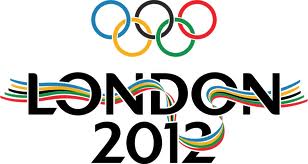With a month to go, it's time to consider how the Games are likely to affect London's air quality. For those with pre-existing lung conditions, like asthma, or with heart disease, days of smog or poor air quality could have a serious impact on health.
The recently issued Commission for Sustainable London 2012 Pre-games Review ('Breaking the Tape'), while satisfied with preparations overall, does raise some concerns over air quality in the capital during the Olympic period. London's population will swell by half a million with visitors, plus an extra 55,000 - 70,000 athletes, accompanying officials and media between July 17 and August 18, according to the Department for Transport. The Department goes on to say that around 800,000 spectators will attend the Games each day. Some of these will, of course, be Londoners, so will not be adding to the capital's population. And there is normally a big tourist influx during July and August anyway. To put it into context, Greater London's population is around 8 million, there are 24 million public transport and road journeys made every day, and the expected 'extra' population during the Olympic period is about 260,000 people.
London's air quality is already poor at times, putting its citizens' health at risk. Surely the added stress of more visitors and more movement around the city is sure to worsen levels of nitrogen oxides and particulate matter pollution? Think of all those potential extra taxi journeys and accompanying diesel exhaust. The only way to stop London air pollution running out of control is to have a plan to get people walking, cycling, or onto public transport instead of driving. Even better, persuade people not to travel unless they really need to – and to discover the joys of working from home!
Transport for London (TfL) has put together a plan and, to be fair, has been publicising it for some months now. Those of us who live and work in London are well aware that there is forward planning, which TfL has based upon traffic and transport computer modelling. 'Breaking the Tape' has looked at the air quality component of the model and notes that 'localised impacts are likely to be small' and 'the overall impacts should be slightly positive' (yes, it is apparently possible for air quality to actually improve during what is the biggest international event ever staged in London). However, computer models have their limitations and we cannot know what the impact of the Games on London air quality will be until the event takes place. For instance, if there is a spell of hot sunny weather – unlikely as this seems at the time of writing – coupled with some of those episodes of severe traffic congestion and gridlock that so often arise in London, then the scene is set for a smog episode. The 'Breaking the Tape' report expresses concern that is not clear how people – especially visitors to London – will be warned of poor air quality in such instances. In his response to the report, Simon Birkett, Founder and Director of Clean Air in London says: "The most-respected independent organisation associated with the London 2012 Olympics has revealed clearly the UK's failure to warn the public during smog episodes." He concludes: "With the world's media starting to arrive for the Games, the great smog 'cover-up' is rightly set to become one of the big issues for London 2012."
Yes, it is concerning that there appears to be no quick warning mechanism to stop people travelling into a smog area. However, there is accessible information on London air quality out there. One particularly useful tool is the Nowcast from the Environmental Research Group at King's College, London. This shows current levels of nitrogen oxides and PM10 pollution across London in a very easy map-based format. It will be interesting to see what is registered by Nowcast during the Olympic period.




